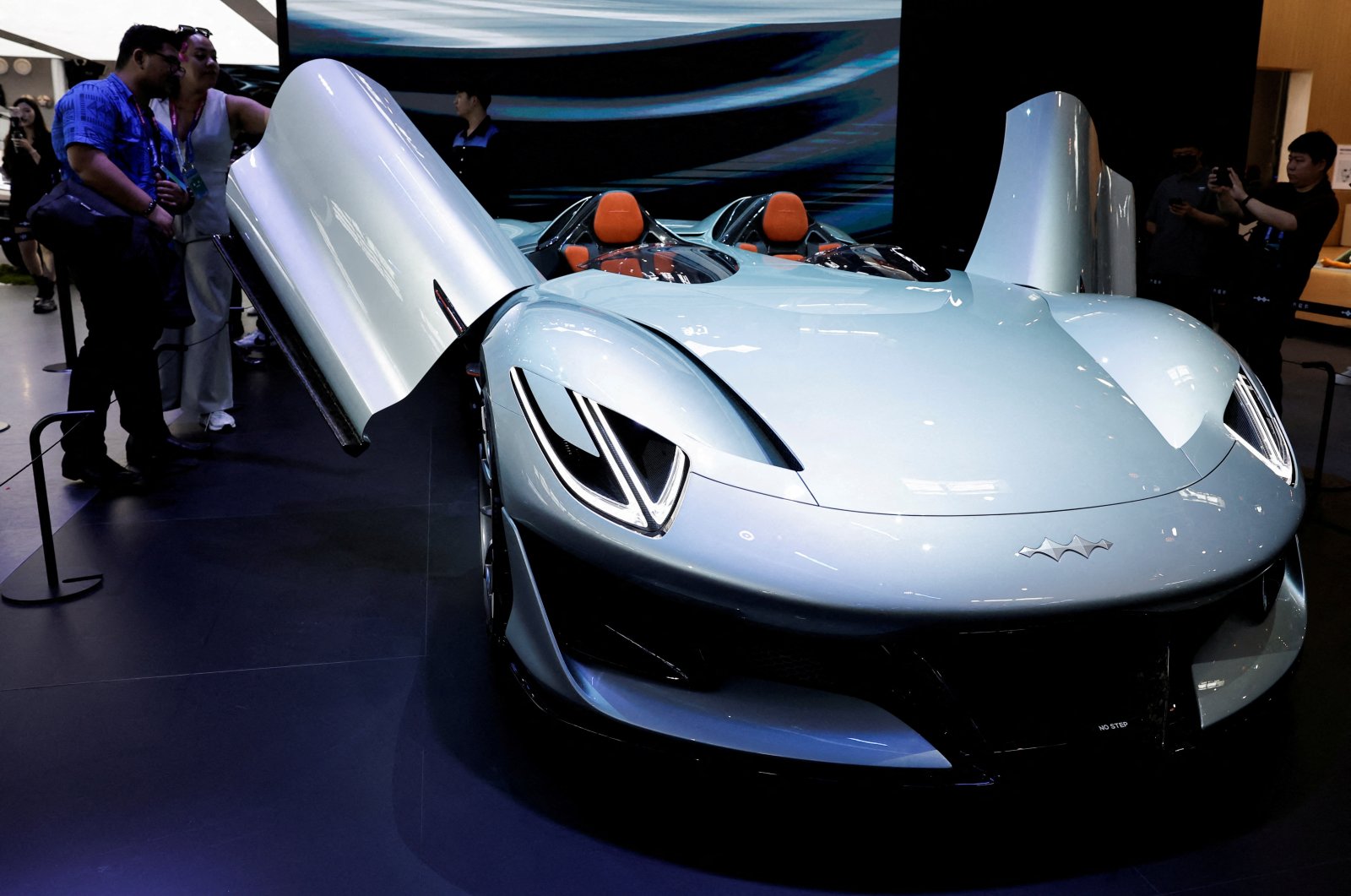
Beijing wants the European Union to give up its preliminary tariffs on Chinese electric vehicles by July 4, China's state-controlled Global Times reported, as both sides agreed earlier to hold new trade talks.
Provisional EU duties of up to 38.1% on imported Chinese-made EVs are set to kick in by July 4 while the bloc investigates what the EU claims are excessive and unfair subsidies to Chinese EV makers.
China has repeatedly called on the EU to cancel its tariffs, expressing a willingness to negotiate. Beijing does not want to be embroiled in another tariff war, still stung by U.S. tariffs on its goods imposed by the Trump administration, but says it would take all steps to protect Chinese firms should one happen.
Both sides agreed to restart tariff talks after a call between European Commissioner Valdis Dombrovskis and Chinese Commerce Minister Wang Wentao on Saturday during a visit to China by Germany's economy minister, who said the doors for discussion are "open."
China's Global Times, citing observers, said the best outcome is that the EU scraps its tariff decision before July 4.
But the commission, analysts and European trade lobby groups stressed that talks would be a major undertaking and China would need to come willing to make major concessions.
"Nobody will dare to do this now. Not before the elections in France," said Alicia Garcia Herrero, senior fellow at Bruegel, an influential EU affairs think tank, on whether the planned curbs could be dropped.
"The commission can't change a decision it has been pondering for months on months on months," she added. "Yes, China is putting pressure on the member states, but they would need to vote with a qualified majority against the commission."
The tariffs are set to be finalized on Nov. 2 at the end of the EU anti-subsidy investigation.
"The EU side emphasized that any negotiated outcome to its investigation must be effective in addressing the injurious subsidization," a commission spokesperson said on Monday.
The Chinese Commerce Ministry did not immediately respond to a Reuters request for comment.
"There is 'zero chance' of the preliminary tariffs being removed by July 4 unless China eliminates all the issues that were flagged by the European side," said Maximilian Butek, executive director at the German Chamber of Commerce in China.
Trade war?
EU trade policy has become increasingly protective of concerns that China's production-focused development model could be flooded with cheap goods as Chinese firms look to step up exports amid weak domestic demand.
China has rejected accusations of unfair subsidies or that it has an overcapacity problem, saying the development of China's EV industry has resulted from advantages in technology, market and industry supply chains.
"When European Commission President Von der Leyen announced she would investigate China's new energy vehicles... I had an intuitive feeling it was not only an economic issue but also a geopolitical issue," said Zhang Yansheng, chief research fellow at the China Center for International Economic Exchanges.
"Personally, I think it is unfair to start a tariff war by only taking into consideration the capacity utilization rate and insufficient demand," he added.
Trade relations between the 27-strong bloc and the world's No. 2 economy took an abrupt turn for the worse when the European Parliament voted in May 2021 to freeze ratification of what would have been a landmark investment treaty because of tit-for-tat sanctions over allegations of human rights abuses in China's Xinjiang region.
Beijing and Brussels came to blows again that year when China downgraded diplomatic ties with Lithuania and told multinationals to sever relations with the Baltic state after Vilnius invited Taiwan, which China claims as part of its territory, to open a representative office in the capital.
Armed, ready
Although Beijing is calling for talks, it has also indicated that it has retaliatory measures ready if the commission does not back down and that it considers Brussels wholly responsible for the escalating tensions.
The Global Times, which first reported that China was considering opening a tit-for-tat anti-dumping investigation into European pork imports – which the Commerce Ministry announced last week it would undertake – has also teed up an anti-subsidy investigation into European dairy goods and tariffs on large-engined petrol cars.
Chinese authorities have dropped hints about possible retaliatory measures through state media commentaries and interviews with industry figures.
"It seems probable that Beijing will raise tariffs up to 25% for Europe-made cars with 2.5 or above liter engines," said Jacob Gunter, lead analyst at MERICS, a Berlin-based China studies institute.
"Pork and dairy are already on the table for Beijing, and likely more agricultural products will be threatened," he added. "On the EU side, there are a variety of ongoing investigations using the new toolkit that Brussels has assembled, so we should expect some sort of measures targeting distortions on (Chinese) products ranging from medical devices to airport security scanners to steel pipes."
